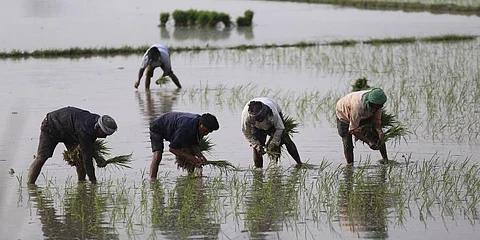

BENGALURU: Union Minister for Chemicals and Fertilisers, Mansukh Mandaviya said on Thursday that the ongoing Russia-Ukraine war has hit the supply of fertilisers which has resulted in the increase in its prices. Speaking to reporters in Bengaluru, the minister, however, said the Centre is taking measures to ensure that farmers are not impacted by it.
“There is difficulty in bringing raw materials available in Russia and Ukraine including diammonium phosphate along with nitrogen, phosphorus and potassium urea fertiliser. China has reduced its production of fertilisers. Urea and complex fertiliser prices have increased.
However, PM Narendra Modi has instructed the ministry to ensure that the farmers are not impacted by the crisis and also instructed us that there should not be any shortage in supply of fertilisers,” he said. To ensure prices in international market will not have any impact on farmers, the prices of DAP, NPK and urea fertilisers have not been changed despite hike in price of raw materials, he added.
Earlier, speaking at the National Conference of State Agriculture and Horticulture Ministers, Mandaviya appealed to all governments to popularise nano fertiliser developed in India which can be a replacement for fertilisers which are imported.
Rs 2.5 lakh crore spent on fertiliser subsidy: Minister
He pointed out that India’s fertiliser consumption is 35 per cent of the total world fertiliser consumption. “We import 70 lakh metric tonnes to 100 lakh metric tonnes of fertilisers which are given to farmers at a subsidised rate. We spend Rs 2.5 lakh crore on subsidy of fertilisers” he said. On nano fertiliser, Mandaviya said, “Each bottle costs Rs 240 and is equal to one bag of urea. It is very effective and needs to be made popular as a step towards ‘Atmanirbhar Bharat’.” The minister said that by 2025, nine plants of nano fertilisers will be set up in the country which is expected to replace two lakh metric tonnes of chemical fertilisers. “We want to achieve one-nation-one fertiliser under Bharatiya Jan Urvarak Yojana,” he added.